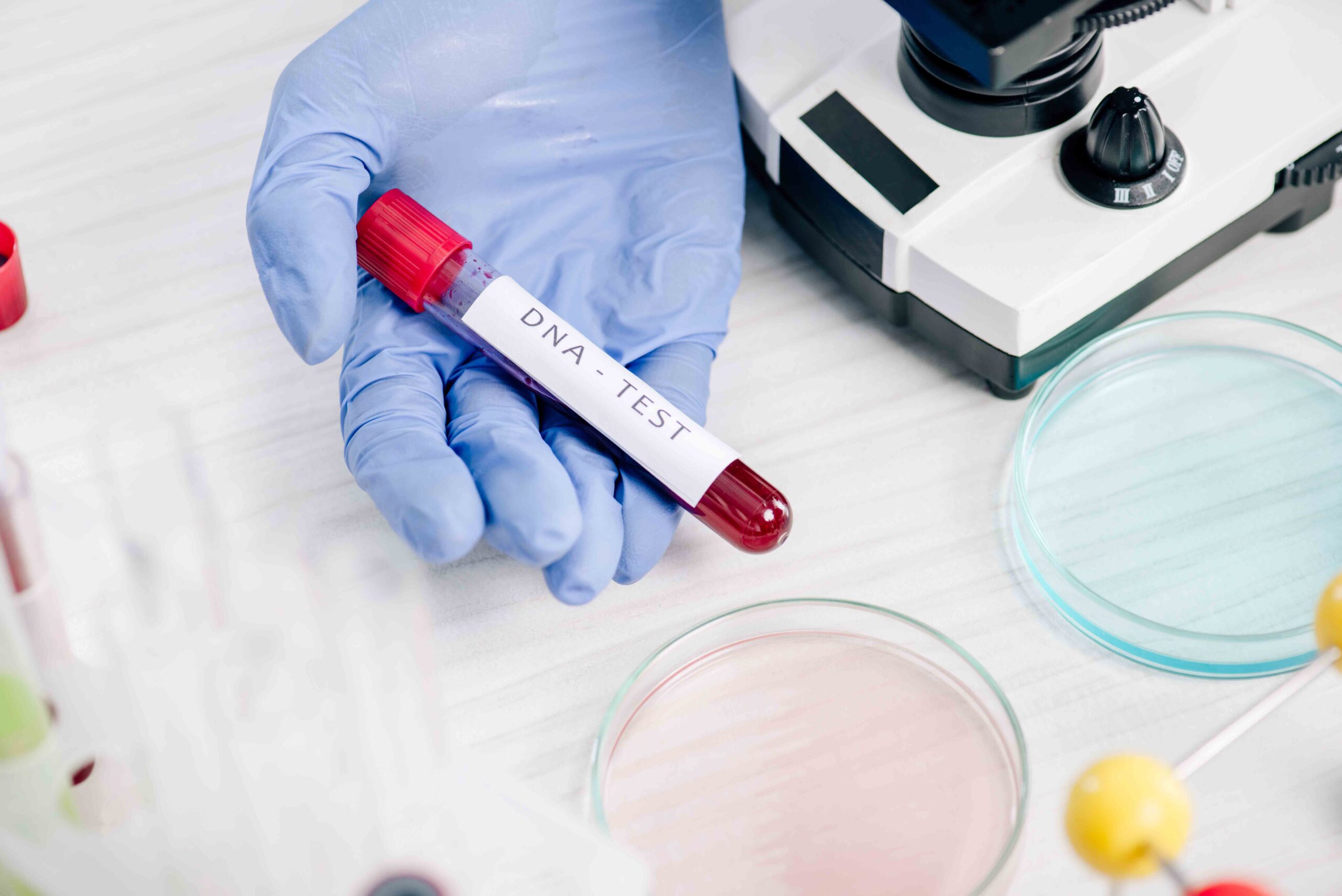In recent years, DNA testing has grown in popularity. They are used for a variety of purposes, from uncovering family history to identifying genetic predispositions to certain health conditions.
Personal Reasons for Taking a DNA Test
Many people take DNA tests to learn more about their ancestry. These tests can reveal information about your ethnic background and trace your family’s migration patterns over centuries. Some individuals also take DNA tests to connect with distant relatives or confirm familial relationships. Here are some detailed reasons:
- Discovering Ethnic Background: DNA tests can provide a detailed breakdown of your ethnic heritage. This information can reveal the diverse regions your ancestors came from, offering a clearer picture of your family’s origins.
- Tracing Family Migration Patterns: By analyzing your DNA, testing companies can trace the migratory paths your ancestors took over thousands of years. This can be fascinating for those interested in history and genealogy.
- Connecting with Distant Relatives: Many DNA testing services have databases of individuals who have also taken the test. This can help you find and connect with distant relatives you may not have known existed, expanding your family network.
- Confirming Familial Relationships: DNA tests can confirm biological relationships, such as whether two people are siblings or if someone is a parent or child. This can be particularly useful in cases of adoption or when there are questions about family connections.
- Uncovering Family Secrets: Sometimes, DNA tests reveal unexpected results, such as unknown siblings or different ethnic backgrounds than previously believed. While this can be surprising, it can also provide a more accurate understanding of one’s heritage.

6. Building a Family Tree: Genealogists often use DNA testing to build comprehensive family trees. By combining genetic information with historical records, you can create a detailed map of your ancestors and their connections.
7. Cultural Reconnection: For some, discovering their ethnic heritage can lead to a deeper connection with their culture. It can inspire individuals to learn more about the traditions, languages, and histories of their ancestral homelands.
8. Personal Identity and Belonging: Understanding your genetic background can contribute to a stronger sense of identity and belonging. Knowing where you come from can be a significant aspect of self-awareness and pride.
9. Inheritance and Traits: DNA tests can also provide insights into inherited traits and characteristics. This can include everything from physical attributes to predispositions for certain talents or abilities.
Health-Related Reasons

- Identifying Genetic Health Risks: DNA tests can identify genetic mutations that increase the risk of developing certain health conditions, such as BRCA1 and BRCA2 mutations linked to breast and ovarian cancer. Knowing these risks can prompt proactive health measures.
- Personalized Medicine: Genetic information can help tailor medical treatments to your unique genetic makeup. This approach, known as pharmacogenomics, can improve the effectiveness of medications and reduce the risk of adverse reactions.
- Preventive Health Measures: By understanding your genetic predispositions, you can take preventive steps to reduce your risk of developing certain conditions. This might include lifestyle changes, regular screenings, or prophylactic treatments.
- Family Health History: DNA tests can reveal health risks that may affect not only you but also your family members. Sharing this information with relatives can help them take preventive measures and make informed health decisions.
- Nutritional Insights: Some DNA tests provide information about how your body responds to different nutrients, helping you tailor your diet for optimal health. This can include insights into metabolism, nutrient absorption, and dietary intolerances.
- Fitness and Exercise Optimization: Genetic testing can offer insights into your physical abilities and how your body responds to different types of exercise. This information can help you design a fitness plan that aligns with your genetic strengths and weaknesses.
- Mental Health: Certain genetic markers are associated with mental health conditions such as depression, anxiety, and bipolar disorder. Understanding these risks can guide you towards appropriate mental health strategies and interventions.
- Carrier Status for Genetic Disorders: DNA tests can determine if you are a carrier for genetic disorders such as cystic fibrosis, sickle cell anemia, or Tay-Sachs disease. This information is crucial for family planning and understanding the risk of passing these conditions to your children.
- Longevity and Aging: Some genetic tests provide insights into factors that influence aging and longevity. By understanding these factors, you can adopt lifestyle habits that promote healthy aging and potentially extend your lifespan.
- Allergies and Sensitivities: Genetic testing can identify predispositions to certain allergies and sensitivities, helping you avoid triggers and manage your health more effectively.
Legal and Forensic Purposes
- Paternity and Maternity Testing: DNA tests can definitively establish whether an individual is the biological parent of a child. This is crucial in cases involving paternity disputes, custody battles, and child support arrangements.
- Child Support and Custody: Courts often require DNA testing to resolve child support and custody disputes. Accurate determination of biological parentage ensures that the right individuals are held accountable for financial support and custody decisions.
- Inheritance and Estate Claims: Inheritance disputes can arise when there are questions about a person’s biological relationship to a deceased individual. DNA tests can provide the necessary evidence to confirm or refute claims to an estate or inheritance.
- Adoption and Reunion: DNA testing can help adoptees and birth parents find and reconnect with each other. Confirming biological relationships through DNA testing can be a vital step in the emotional and legal process of adoption reunions.
- Immigration Cases: In immigration cases, DNA tests are sometimes required to prove family relationships. This can be necessary to establish eligibility for family-based immigration benefits or to comply with immigration regulations.
- Forensic Investigations: Law enforcement agencies use DNA testing to solve crimes by identifying perpetrators from biological evidence left at crime scenes. This can include hair, skin cells, blood, or other bodily fluids.
- Missing Persons and Unidentified Remains: DNA tests can help identify missing persons or unidentified remains. By comparing DNA from remains with that of living relatives, forensic scientists can provide answers in cases of missing persons or mass disasters.
- Exoneration of Wrongfully Convicted Individuals: DNA testing has played a pivotal role in exonerating individuals wrongfully convicted of crimes. Post-conviction DNA testing can provide conclusive evidence of innocence, leading to the overturning of wrongful convictions.
- Criminal Paternity Cases: In some criminal cases, determining paternity is crucial. For example, in statutory rape cases resulting in pregnancy, DNA testing can establish the paternity of the child and link the accused to the crime.
- Genetic Fingerprinting: Genetic fingerprinting is used to identify individuals based on their unique DNA profiles. This technique is widely used in criminal investigations, security, and even in verifying the identity of individuals in large databases.
Privacy and Ethical Considerations

Making an Informed Decision
Ultimately, whether you need to take a DNA test depends on your personal circumstances and reasons for considering one.
Role of a Tess House Lawyer

- Understanding Legal Implications: A lawyer can explain the legal ramifications of taking a DNA test. This includes understanding how the results might impact paternity suits, inheritance claims, and other legal matters.
- Interpreting Test Results: Lawyers can help interpret DNA test results within the context of legal standards and requirements. This ensures that the results are presented accurately and effectively in legal proceedings.
- Ensuring Proper Procedure: For DNA test results to be admissible in court, they must be obtained through proper channels. A lawyer can guide you through the correct procedures to ensure the test results are legally valid.
- Protecting Your Privacy: Lawyers can advise on how to protect your genetic information and privacy rights. They can help you understand the terms of service of DNA testing companies and ensure your data is not misused.
- Handling Disputes: In cases of paternity disputes, inheritance conflicts, or other legal issues, a lawyer can represent your interests and handle disputes that arise from DNA test results.
Conclusion
What We Stand For & Who We Are

After five years of success, at Tess House Law, we are happy to be at the forefront of the legal services sector and will continue to work tirelessly around the clock to make sure you get all you deserve. As your partners, we recognize the anxiety and worry that comes with legal entanglements. We take great pleasure in our commitment to supporting you at every turn.
Together, let’s win this.

